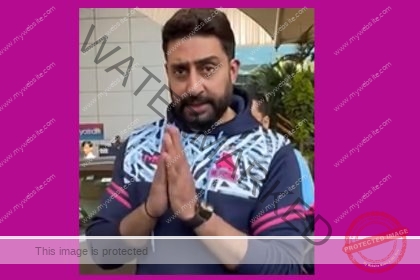Have you ever imagined yourself chasing stories and uncovering the truth like a reporter?
Journalism is an exciting journey that mixes curiosity, good communication, and a strong passion for the truth. Working in a busy news channel in Siliguri or anywhere else isn’t just about chasing breaking news. It’s about connecting with people, telling their stories responsibly, and making sure the right information reaches the audience.
If you’re someone who loves following current events, enjoys asking questions, and always notices the little details others often miss, chances are you’re already showing the qualities of a future journalist. Let’s explore 22 signs that you might be on the path to becoming a top reporter.
1. Curiosity Is in Your Nature
Great reporters are born curious. You’re the kind of person who’s always asking “why” or “how,” and you don’t stop digging until you’ve found the answer. That constant urge to know more is one of the strongest signs you’re made for journalism.
2. You Enjoy Turning Facts Into Stories
Being a reporter isn’t just about gathering facts; it’s about turning them into meaningful stories. If you love shaping information in a way that people can relate to and connect with, you already have the mindset of a journalist.
3. You’ve Got an Eye for the Little Things
In journalism, the smallest details can change the whole story. Maybe it’s a wrong date, a slip of the tongue, or a number that doesn’t add up if you’re the kind of person who notices these things while others overlook them, you already have one of the most valuable skills a reporter needs.
4. You Stay Calm Under Pressure
News doesn’t wait for anyone. Deadlines come fast, stories keep changing, and things can get a little hectic. But if you’re the kind of person who keeps a cool head and stays focused even when everything feels rushed, that’s a clear sign you’re cut out for reporting.
5. You’re Confident Talking to People
Reporters spend a lot of time interviewing strangers. If you can strike up a conversation easily or make others feel comfortable enough to share, you’re practicing one of journalism’s key skills.
6. Research Feels Exciting, Not Boring
Every great story starts with good research. If you enjoy going through articles, checking facts, or uncovering hidden details to get the full picture, you’re already thinking like a true journalist.
7. You Can Write Fast and Clear
Being a good writer isn’t about using complicated words. It’s about making your point clear. If you can write simple, easy-to-read content quickly, you’re already showing a skill every reporter needs.
8. You’re Comfortable with Technology
Today’s reporters don’t just use notebooks; they use social media, editing apps, and smartphones too. If you enjoy trying out new tech, you’ll feel right at home in modern digital journalism.
9. You Never Give Up
Some stories aren’t easy to uncover. They might take several calls, extra questions, or a lot of patience. If you keep going and don’t give up, that determination becomes one of your biggest strengths as a reporter.
10. You Truly Care About People’s Stories
Journalism isn’t only about presenting facts; it’s about capturing the emotions and experiences behind them. When a journalist shows empathy and truly connects with people’s stories, the reporting feels real, relatable, and far more powerful.
11. You Learn From Feedback
Editors, colleagues, and even readers will give feedback sometimes it’s tough to hear. If you can listen, learn, and use it to get better without getting discouraged, you’re already showing the mindset needed for the newsroom.
12. You Keep Things in Order
Handling notes, interviews, deadlines, and assignments can get hectic. If you can stay on top of everything without getting overwhelmed, you’re already showing the kind of discipline a good reporter needs.
13. You Notice Stories Others Might Miss
Some people sense when something newsworthy is happening. If you catch trends, spot unusual events, or can tell which stories will matter, your instincts are already on point.
14. You Value Truth Above All
Top reporters are respected because they tell the truth. If you care about being honest and fair, even when it’s hard, you’re already showing the values every good journalist needs.
15. You Adapt Easily to Change
News can be full of surprises. A story might shift in just a few minutes. If you can stay calm, adjust fast, and keep your focus, you’ve got the mindset of a true journalist.
16. You Build Connections Easily
Great reporters know the value of trust. If people feel comfortable sharing information with you, your network becomes one of your biggest strengths, and it can open doors to stories others can’t reach.
17. You Never Stop Learning
A journalist must know a little about everything: politics, health, technology, culture. If you’re always eager to learn, you’ll never run out of stories to cover.
18. You’re Observant in Every Situation
Sometimes, the most important part of a story is what’s not being said. If you notice body language, surroundings, or hidden details, your observation skills will make your stories stronger.
19. You Stay Cool During Chaos
Reporters often cover emergencies, rallies, or unpredictable situations. If you can remain calm while still gathering information, that’s a valuable quality.
20. You’re Good at Multitasking
Taking notes, recording audio, snapping photos, and thinking of headlines all at once. If you can juggle tasks efficiently, you’re practicing the skills of a field reporter.
21. You’re Driven by Passion for Truth
It’s not about being famous, it’s about informing people. If you genuinely want to share the truth and help others understand the world better, you’re already walking the reporter’s path.
22. You Never Stop Improving
Top reporters are always looking to get better. They work on their writing, interviewing, and storytelling skills. If you’re constantly trying to improve, you’re on the right track.
Ways to Get Into Journalism
Getting into journalism can be competitive, so training and experience really help. The good news is, there isn’t just one way to start.
University Degrees
Many journalists study journalism or media at university. It helps you learn writing, reporting, and media rules.
Some students study other subjects like politics, history, or English, then do a journalism course later to get the practical skills they need.
Apprenticeships
If full-time study isn’t for you, apprenticeships are a great choice.
You can earn money while learning on the job at places like the BBC or local news outlets, getting real experience in the newsroom.
Work Experience
Work experience is very important.
Internships or placements at newspapers, TV, or online platforms help you understand the job and build connections. Even unpaid experience can help, as long as it’s fair.
Other Paths
Not everyone follows a formal route. Some people start by blogging, podcasting, or freelancing.
Others switch from related careers like PR, research, or specialist industries where their knowledge is useful.
Scope of National and International Schools: Opportunities for Students
1. Global Exposure and Diversity
- International Schools offer a global learning environment with students from different cultures, preparing students for worldwide opportunities.
- National Schools focus on local culture and education, with some offering international exposure through programs and exchange opportunities.
2. Higher Education Opportunities
- International Schools follow curriculums accepted by universities worldwide, making it easier for students to apply abroad.
- National Schools focus on preparing students for local university entrance exams, which is ideal for those pursuing higher education within the country.
3. Holistic Development
- International Schools emphasize extracurricular activities like sports and arts, promoting overall development.
- National Schools are more focused on core subjects, with growing inclusion of extracurriculars.
4. Cultural Understanding
- International Schools celebrate multiple cultures, preparing students for a global career.
- National Schools instill a strong understanding of local culture and national history, which is crucial for contributing to local society.
5. Cost and Accessibility
- International Schools have higher tuition fees and are usually found in major cities, making them less accessible.
- National Schools are more affordable and widely available across the country.
How to Take the Next Step
Noticing these signs in yourself is just the start. Here’s how you can move forward:
- Write small articles or blog posts about local events.
- Volunteer for community reporting or social media coverage.
- Learn some basic photography, video, or editing skills.
- Practice interviewing friends and family to get more comfortable.
The more you try, the stronger your reporting skills will become and the closer you’ll get to becoming a top reporter.
Conclusion
If you see yourself in many of these signs, it might be the right moment to turn your passion for reporting into a real career. Getting hands-on experience at a trusted news channel in Siliguri like Amudarya News, could be the perfect way to start. Remember, every top reporter began exactly where you are now,curious, excited, and ready to share stories that truly matter.






